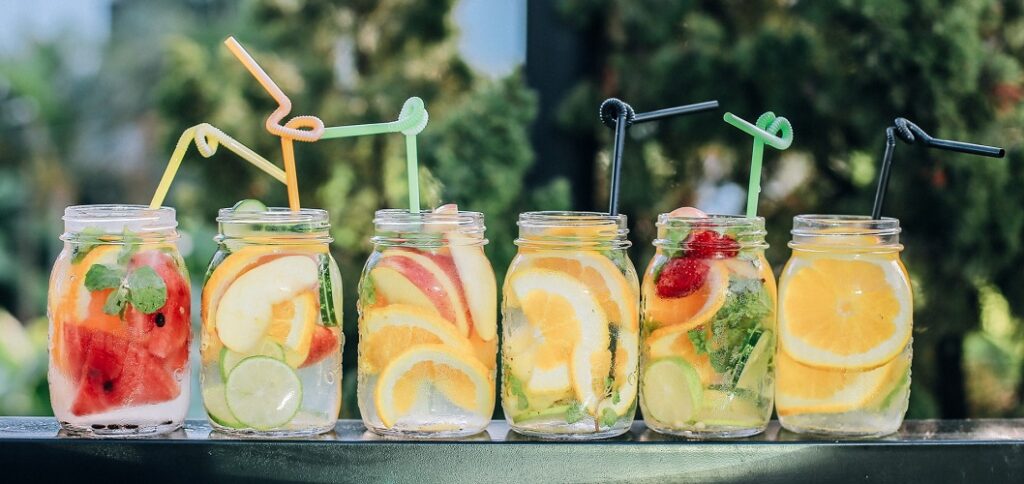Healthy beverages for physical and mental well-being

“Health is the greatest wealth” is a saying that has gained in meaning for many people due to Covid-19. Interest in healthy beverages, which are designed to boost both mental and physical well-being, is rising sharply, too.
Promoting health on multiple levels
A survey of 23,000 people from 18 countries conducted by the market research firm FMCG Gurus on behalf of Beneo found that 64 percent of consumers are more conscious of their immune systems because of Covid-19. As a result, they are also interested in foods and ingredients that promote their health or have a preventive effect. More than half of respondents said it was important to them that a product supported mental well-being.
The market research firm Mintel underscores these survey findings. The company forecasts a significant trend in the future for products that promote mental and emotional well-being and thus create a new basis for healthy and mindful eating. Examples of healthy beverages that meet these consumer demands have already established themselves on the market, as the following examples show.
Examples for healthy beverages

The California-based company Whalebird Kombucha produces a range of wellness drinks, each combining traditionally fermented kombucha with fruit purees, oils and botanicals such as lemon myrtle, lavender flower and ginger root. The lactic acid bacteria contained in kombucha are said to strengthen the immune system and promote healthy digestion.
Agthia, headquartered in the United Arab Emirates, carries “Al Ain Vitamin D,” – a water infused with that vitamin and designed to compensate for a lack of daylight.
The UK’s Meda Wellness Ltd. offers “Focus,” a CBD drink sweetened with maple syrup that contains espresso, rosemary and ginseng and is intended to improve concentration. The company’s CBD portfolio also includes “Calm,” “Defence” and “Recover” drinks, all containing natural ingredients, including oils, vitamins, herbs and fruits.
Also worth noting are fruit drinks enriched with apple cider vinegar in cranberry, yuzu, grape or pomegranate flavors from Kuze Fuku & Sons, made in the USA. According to centuries of experience, apple cider vinegar can detoxify, lower blood sugar and blood fat levels, boost the metabolism and much more.
Personalized concepts for healthy beverages
The buzzword increasingly heard in connection with healthy beverages is “personalization”.
For example, Nestlé’s “nesQuino” beverage system, which was initially launched on the Chinese market, is a solution that enables consumers to mix their own vitamin-rich beverages from natural ingredients.
The complete package includes the system’s “Q-Cup” in which the product is mixed. In addition, the system offers superfood pouches with ingredients such as fruits, vegetables, nuts and seeds, roots and microalgae, along with complementary basic pouches that contain milk, cereals and plant-based ingredients.
A total of 21 different healthy drinks can be produced to meet the user’s needs. Simply select a superfood pouch and a basic pouch, pour the contents into the “Q-Cup” with water, select the desired temperature and the superfood beverage is ready to drink in just two minutes, according to company information.

Greenspoon Inc., from Japan, also has an interesting idea: The company offers personalized smoothies in a monthly subscription service. Kroger, a U.S. grocer, has another concept: nutrition experts help customers choose specific foods and beverages that have been especially recommended for them by a doctor.
Mintel forecasts that consumers will increasingly turn to personalized food and beverages over the next ten years, in part because DNA tests will become more common and affordable. In addition, many consumers have learned more about the importance of the microbiome and how the brain, digestive system and emotions are interconnected. In the future, DNA test results and analyses of intestinal flora could increasingly be used as the basis for individual nutritional concepts.
The Danish start-up Gutxy is already developing customized nutritional recommendations and promoting its ability to balance intestinal flora; Canadian start-up Gini aims to provide an optimal nutrition combination based on DNA information.
Beverages enriched with fiber also help to maintain intestinal health. Particularly in the Asian market, many water manufacturers have already begun adding dietary fiber to their waters.
Low-sugar beverages are the trend
According to the World Health Organization (WHO), more than a quarter of the world’s population is overweight and more than 400 million people have diabetes. So it comes as no surprise that market researcher FMCG Gurus forecasts that a growing number of consumers want to consume less sugar in the future. The company says 40 percent of consumers worldwide are already making a conscious decision to consume fewer products with sugar, with low-sugar beverages playing an important role.
Government intervention in this context can also have a notable impact. For example, by introducing a soft drink tax, the UK was able to reduce average sugar content in soft drinks by more than 30 percent within two years.
Coconut water is increasingly used as an ingredient in fruit juices. It helps lower the total sugar content of fruit juices while enabling them to maintain their claim of being 100 percent juice. According to Mintel, nearly 20 percent of new global coconut water drinks launched in the last three years involved fruit juice-blended beverages. Even consumed on its own, low-calorie coconut water, which is rich in electrolytes, is popular worldwide: Three-quarters of Indians and more than 40% of Brazilians say they drink it. In Europe, coconut water is especially popular among Millennial and Generation Z consumers.

More enjoyment with non-alcoholic beverages
“Stay sober and have fun doing it” is another trend accelerated by Covid-19. New York author Ruby Warrington, who published a book on the topic in 2018, is considered a pioneer of what is called the “sober curious movement”.
According to a survey of more than 11,000 respondents in nine countries (Australia, South Africa, Mexico, France, United States, Germany, United Kingdom, Japan, New Zealand) conducted by polling firm YouGov on behalf of IARD (International Alliance for Responsible Drinking), 84 percent said they drank the same amount of or less alcohol during the first Covid-19 lockdown. The share of respondents who drank significantly less or stopped consuming alcohol was 30 percent.
The trend towards less alcohol is confirmed by IWSR Drinks Market Analysis. The market research company expects a global annual growth rate of 8.8 percent for non-alcoholic beer, 13.5 percent for non-alcoholic wine and 8.6 percent for non-alcoholic mixed drinks by 2023.
In the alcoholic segment, it also sees a growing shift towards low-alcohol beverages. An example of this is hard seltzer, an alcoholic beverage based on carbonated water and alcohol, often with aromas as added fruit flavors.
The trend toward hard seltzer drinks started in the U.S. in 2013 and is becoming increasingly popular in other continents and countries. According to IWSR, more than half of alcohol consumers in the U.S. now drink hard seltzer at least once a week. By 2023, the market research institute predicts annual sales in the U.S. will reach 281 million 9-liter cases, tripling the figure from 2019.
Another example is Cider: The IWSR predicts that this cider-based alcoholic beverage will grow by two percent annually by 2023.
Demand for healthy beverages is increasing
In general, in the future consumers worldwide will be more aware of the processes taking place in their bodies. With this new understanding of biological connections, healthy and low-sugar beverages that promote physical, mental and emotional well-being are expected to continue benefiting from growing demand.
You can learn more about how the beverage industry is responding to these demands and the resulting innovations and solutions at the next drinktec, from September 12-16, 2022.
